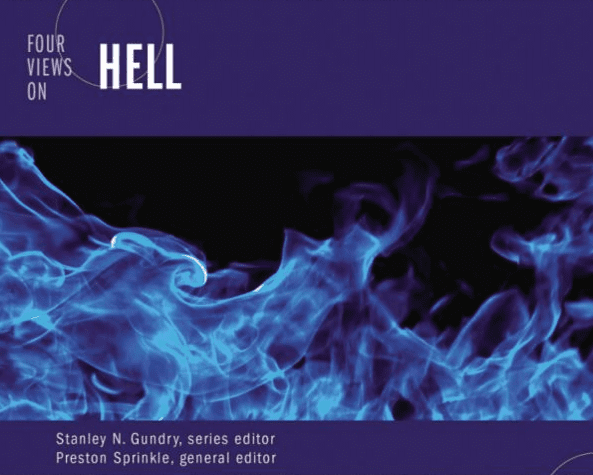 Christopher Marshall, a professor at Victoria University in Wellington, New Zealand, thinks so. While I’m not entirely sure he resolves the problems he generates, and he generates them as well as anyone I’ve read, his approach to the problem of hell (Rethinking Hell) is somewhere along the line of conditionalism or annihilationism or final radical diminishment. Perhaps he is closest to C.S. Lewis though I don’t think he would say that.
Christopher Marshall, a professor at Victoria University in Wellington, New Zealand, thinks so. While I’m not entirely sure he resolves the problems he generates, and he generates them as well as anyone I’ve read, his approach to the problem of hell (Rethinking Hell) is somewhere along the line of conditionalism or annihilationism or final radical diminishment. Perhaps he is closest to C.S. Lewis though I don’t think he would say that.
His concern is the moral problem of retributivist judgment as contradictory to God’s goodness and love, and his appeal is for a restorationist justice model as consistent with God’s grace, love and goodness.
At this point I want to raise my big question: Can “hell” be restorationist without becoming universalism or, if not universalism, can it be called restorationist justice? In what sense is Marshall’s piece “restorationist”? If God’s motive is restorationist, is God desiring universalism? If not, is God’s judgment restorationist?
His contention is that a retributivist model of final judgment/hell is both unjust and out of line with God’s relational qualities. That is, it is impossible to square an infinite and eternal punishment — ongoing forever and ever — on finite beings. In what might be his best section, he contends that the “status argument,” or defending eternality of punishment and suffering on the basis of God’s status as infinite, cuts against the grain of all senses of human judgment. How so? In our world, for a strong man to pound the daylights out of a weak child, is so out of line with our sense of what is right that we have to wonder if the logic of the “status argument” makes God immoral.
He pushes against D.A. Carson’s theory of ongoing rebellion by sinners diminishes or defeats God’s ultimate victory and results in God willing immortality in order to continue punishing. Why, he asks, would God want to punish endlessly? To quote Walter Moberley, this would be “truly pointless, gratuitous evil” (216). I find these arguments potent and deserving more than casual dismissals.
So he proposes a restorationist model of hell, with the above questions:
1. God is love so all judgment must emerge from God’s goodness and love. The final judgment then must flow from restorative love and justice, not simply retributivist. Some may refuse this restorative love, and God will leave them to their own will (this sounds like Lewis).
2. The language of the NT is often parabolic and symbolic and outside human experience. It must be seen as rhetoric first and not literal descriptions.
3. The final judgment is not really retributivist but relational: humans are judged for their overall character and orientation to God (faith, which is relational not qualitative).
4. Eschatological loss is also relational and not genuinely retributivist: there are no grades of punishment.
5. Retributivist language is often used and is designed to transform. I have to add a response here: there is a fine line between mere rhetoric and an imagined world created by that rhetoric. In other words, why use such language rhetorically? If it is OK rhetorically is it therefore OK morally in reality? Does not rhetoric create a moral world and order?
6. He sees final hell more as “metaphysical suicide than divinely imposed capital punishment” (225). He’s siding here with annihilationism.
I’m back to my original questions in bold above.











